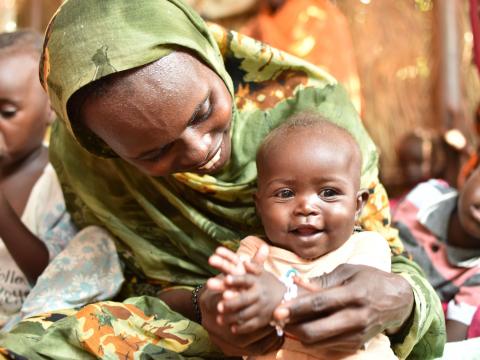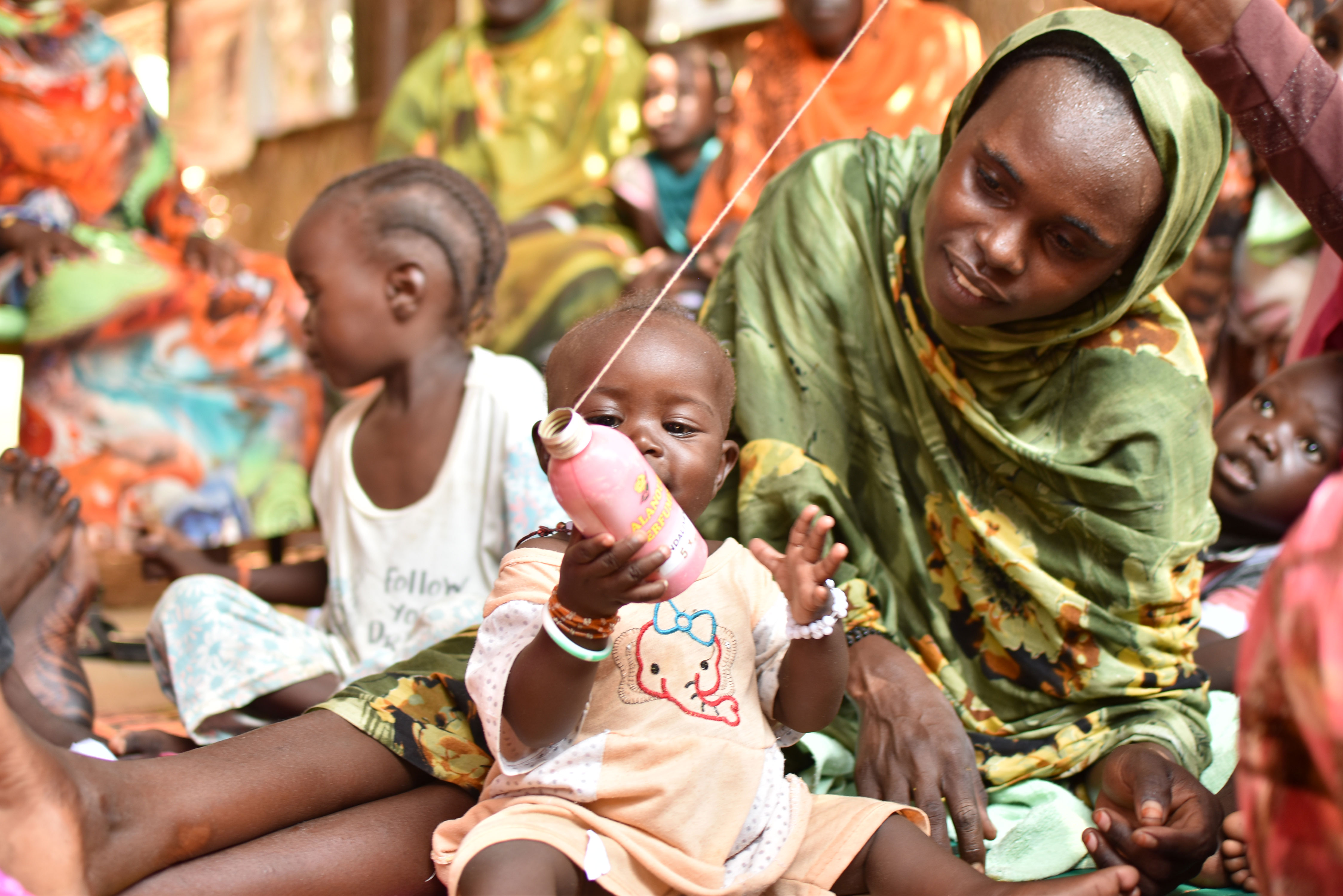Giving children the best possible start in life through Go-Baby-Go

"In the last 15-20 years, research conducted in developing countries has shown that combining maternal and child health programmes with support for positive parenting and psychosocial stimulation is likely to have long-term benefits for children’s development and health," Dr. Takele Lakew, World Vision's health and nutrition sector advisor in Sudan explains.
Drawing from the findings of this research, World Vision tried to explore the added advantage of integrating child psychosocial stimulation and care, within the existing nutrition programmes in Mershing locality, through the programme called, Go-Baby-Go.
"This was delivered through trained community volunteers, using a two-group comparative study. One group consisted of caregivers and children receiving therapeutic feeding with early childhood psychosocial stimulation and care, while the second group was comprised caregivers and children receiving only therapeutic feeding, without early childhood psychosocial stimulation and care,” explains Dr. Takele.
The idea of the Go-Baby-Go programme is to empower caregivers, both mothers and fathers, to provide their babies with nurturing care and services that promote their holistic development.
What caregivers are saying
At the end of 2016, Mashier, 25, visited the Mershing nutrition centre to seek treatment for her 8-month-old daughter, Mayamen, who had been experiencing frequent illness, which caused her to lose weight.
After physical examination by the nutrition officer, Mashier was informed that her child was moderately malnourished and immediately admitted to the therapeutic feeding programme.
Unlike before when mothers would receive the nutrition supplies, feed their children and go home, Mashier says they spent one to two hours at the nutrition centre playing with their children, with toys they had created out of local materials such as clay, paper and plastics.

While playing with her child, Mashier notes, she realised that the playground environment created a positive emotional attachment for her child, nothing she had seen before. “In between playing, I would also massage my child and I could notice the calmness,” she says.
After the play sessions, community mobilisers would educate the mothers on things like appropriate feeding practices, communicable diseases and reproductive health care, followed by weekly home visits.
After three consecutive visits to the nutrition centre, the health workers observed that Mayamen had shown good progress, plus she had regained the lost weight. She was discharged from the programme six weeks after admission.
Mashier has observed many positive changes in her life and parenting skills as a result of the Go-Baby-Go programme
- "Now, I create time to spend more with the children, playing and communicating, listening to, and observing them as they move around home," she says.
- "By paying more attention, I am more alert to my child’s needs. For example, I would know when they are hungry, or if they want to nap, or need a change of clothes," she says.
- "I have also come to learn that playing with my children not only amuses them but it also gives me a great feeling of release and relaxation," she says.
- Mashier observed that her daughter played more and was more active, compared to before.
- "It is becoming apparent that when caregivers give attention to the child, it gives them a sense of comfort, safety and the feeling of being loved," Sheikh Yasir Mohamed.

The bigger picture
At least 200 mothers in Mershing have participated in the Go-Baby-Go programme, conducted during clinic visits, by the trained community mobilisers, followed by weekly household visits to foster positive parenting at the household level.
Fatima Mousa, is one of the trained community mobilisers and continues to champion sensitive parenting. “There’s a lot we teach the caregivers, some of these things they already know, it is just a matter of enhancing that knowledge further or reinforcing its importance,” Fatima explains.
At the Mershing clinic, there’s a makeshift structure, that continues to serve as the Go-Baby-Go classroom. With the aid of pictures and posters hanging from the walls, and pamphlets as teaching materials, Fatima facilitates sessions to help caregivers improve their parenting techniques.

Another added benefit is that many fathers also are more involved in positive parenting! Now, at least once every evening, Mashier’s husband gathers the children together to narrate one of the traditional legends, as a bedtime story. This is something, they didn’t do before.
Dr. Takele acknowledges that such practices, as as reading to children during the early stages in life, in particular children from birth to three years old, when their brains are developing is critical for their cognitive behaviour and development.
World Vision is implementing these and many other programmes, to promote the well-being of children like Mayamen and Mohammed.
Learn more about our health and nutrition programmes.
Story by Gamal Ghallab, photography and editing by Lucy Murunga (additional editing by Heidi Isaza).